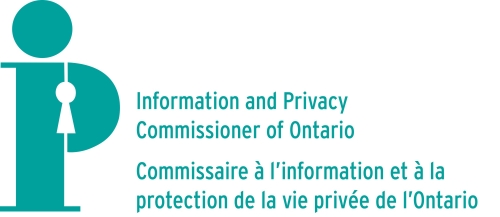Canada's information and privacy regulators wrap up meeting that focused on critical access and privacy issues facing Canadians Français
Topics included cyber security, artificial intelligence and the risks of storing health information outside Canada
TORONTO, Oct. 10, 2025 /CNW/ - Federal, provincial, and territorial information and privacy commissioners and ombuds with responsibilities under access and privacy laws have concluded their annual meeting in Banff, Alberta. The two-day meeting, hosted by the Information and Privacy Commissioner of Alberta, included discussions on a broad range of privacy and access to information issues, with a strong focus on emerging issues related to new technologies, such as the use of artificial intelligence (AI), cybersecurity risks and the protection of online data.
Online harms and the information ecosystem
Emily Laidlaw, a Canada Research Chair in cybersecurity law and Associate Professor in the Faculty of Law at the University of Calgary, presented on online harms and the information ecosystem, with references to AI, protection of children, mis/disinformation, freedom of expression and human-centric cybersecurity.
Protecting health information: The use of servers outside Canada
Information and privacy regulators in Canada play a role in the protection of health information through ensuring compliance with health information laws and/or private sector laws. An emerging issue is the use of servers outside Canada to store the health data of Canadians. Michael Geist, Canada Research Chair in Internet and E-Commerce Law in the Faculty of Law at the University of Ottawa spoke to the meeting about the need to consider whether data localization should be regulated under privacy or other laws in Canada.
Cyber security challenges and opportunities for cooperative leadership
Cyber security is top of mind for privacy regulators as they continue to deal with massive data breaches caused by cyber security attacks. Daniel Couillard and Richard Larose, both with the Canadian Centre for Cyber Security (Cyber Centre), provided an overview of the roles and mandate of the Cyber Centre, Canada's federal technical authority on cybersecurity. This included insights from their National Cyber Threat Assessment 2025-2026 and a discussion of opportunities for mutual support.
The use of AI by administrative tribunals
Since their origins in the 19th century, the rationale for the use of administrative tribunals has been primarily to achieve more efficient and effective decision-making, which is a benefit that AI may provide. Paul Daly, Chair in Administrative Law and Governance at the University of Ottawa, shared his views on the use of AI by administrative tribunals, describing potential advantages and disadvantages, and outlining a possible path toward appropriate uses of AI by these tribunals.
AI: A role in the delivery of health care
The use of AI in health care is rapidly advancing across the country and around the world. An emerging application is the use of AI scribes to record and transcribe physician conversations with patients. Ross Mitchell, a Professor in the Department of Medicine and an Adjunct Professor in Computer Science at the University of Alberta, and a Fellow at the Alberta Machine Intelligence Institute, provided an overview to the meeting of deep learning and recent applications to health care, including the use of AI scribes and how to consider privacy rights in this context.
Legislative updates & court decisions
Meeting participants discussed recent developments and expected changes to access and privacy laws across Canada, as well as a number of recent key court decisions with implications for access and privacy. This provided insights and understanding regarding trends and opportunities for legislative modernization in the context of the evolving legal landscape.
"Collaboration with our colleagues across the country has never been more important," said Patricia Kosseim, Information and Privacy Commissioner of Ontario. "This annual meeting offered an opportunity to tackle pressing access and privacy issues facing Ontarians -- from artificial intelligence to rising cybersecurity threats and online harms. These issues cut across borders and demand a coordinated response. In a time when misinformation spreads quickly and children are especially vulnerable, working with regulators nationwide strengthens our joint commitment to safeguarding access and privacy rights, sharing knowledge, and delivering better protections for all."
SOURCE Office of the Information and Privacy Commissioner/Ontario


Share this article